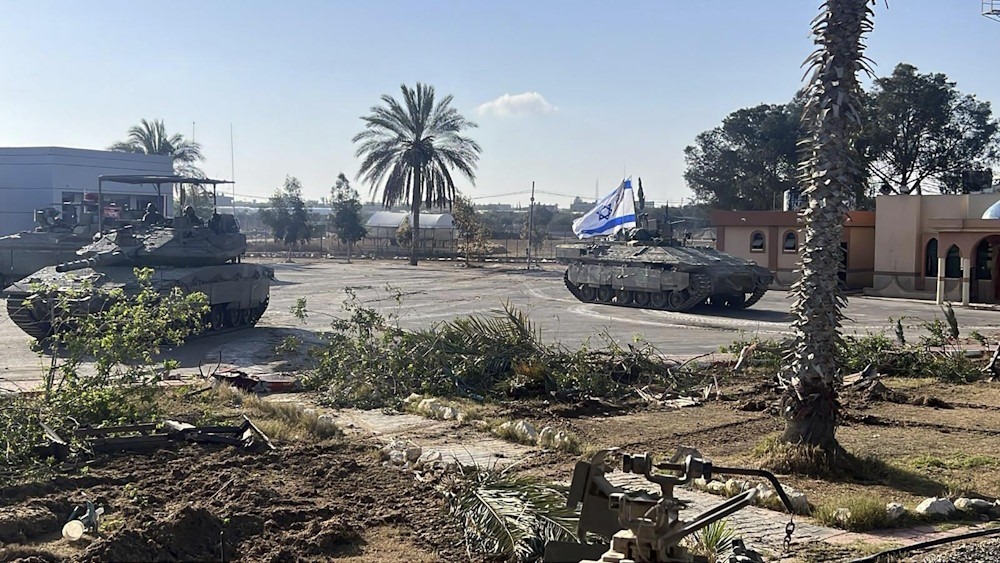Fighting breaks out in Gaza

The conflict between Israel and Hamas escalated throughout the Gaza Strip on Monday, while mediators worked towards restarting negotiations to halt the violence and secure the release of hostages in the area.
Israel’s military recently carried out ground operations in the northern Gazan regions of Jabalia and Zeitoun, engaging in combat with Hamas fighters in the southern city of Rafah. The recent raids highlighted Israeli Prime Minister Benjamin Netanyahu’s concern that even if Hamas is defeated in Rafah, Israel may still have to contend with a long-lasting insurgency.
Israel has advanced deeper into Rafah over the past week as part of a focused operation aimed at exerting pressure on the U.S.-designated terrorist group. The objective is to secure the release of hostages in exchange for a temporary cease-fire.
However, the current approach has unfortunately resulted in escalated conflict, even in areas of Gaza that were previously declared free of militants by the Israeli military. The cease-fire negotiations, which were being mediated by Egypt, Qatar, and the U.S., have also come to a halt.
Arab mediators remain optimistic about bridging the divide between the two parties and are planning to meet again in Doha, Qatar, this week, according to Egyptian officials.
Amidst Israel’s solemn annual memorial day to honor fallen service members, clashes erupted on Monday, just before the start of the celebratory events that mark the country’s establishment in 1948.
Israel is currently exerting military force on Hamas in Rafah with the goal of securing the release of hostages. Prime Minister Netanyahu stated in a podcast recorded on Sunday that the objective is to enter the city and dismantle four of the group’s military battalions.
“We are on the verge of eliminating the last remaining Hamas battalions,” he declared. “That’s an essential requirement for achieving success.”
Israeli authorities report that there are still around 130 hostages in Gaza, who were taken by Hamas and other Palestinian militants in the October 7 attack. Tragically, this attack resulted in the loss of 1,200 Israeli lives. According to local health authorities, the operation carried out by Israel in Gaza has resulted in the tragic loss of 35,000 lives. However, it is important to note that these figures do not differentiate between civilians and combatants.
With the commencement of Israel’s targeted operation in Rafah last week, a staggering number of over 300,000 Palestinians have been forced to flee the city. The dire humanitarian situation in Rafah has intensified, placing renewed international pressure on Netanyahu to bring an end to the ongoing conflict.
U.S. Secretary of State Antony Blinken had a conversation with Israeli Defense Minister Yoav Gallant on Sunday evening to emphasize the U.S.’s stance against a significant ground operation in Rafah. This area had served as a safe haven for over a million people seeking refuge from the conflict in other parts of the strip until last week.
President Biden is considering withholding further weapons sales to Israel if it persists in disregarding American concerns. It is uncertain whether Israel’s operation in Rafah can be classified as a significant ground operation.
The conflict is also causing significant tension between Israel and Egypt, former adversaries who forged a groundbreaking peace agreement in 1979. Egypt announced on Sunday its intention to provide support to South Africa’s case against Israel at the International Court of Justice. The decision was made due to concerns about the increasing magnitude of Israel’s activities in Gaza.
Due to the ongoing conflict in Rafah, the Egyptian crossing at the border city has experienced significant closures. Hamas has launched rocket barrages at military positions near Israel’s Kerem Shalom terminal, which serves as an important gateway into southern Gaza. On Monday, the Health Ministry in Gaza expressed grave concern over the increasingly dire fuel shortage, which has unfortunately resulted in the inability to operate generators in hospitals and ambulances.
According to Egyptian officials, humanitarian-aid trucks originating in Egypt are being prevented from entering Gaza through Kerem Shalom. Cairo expressed frustration over Israel’s sudden seizure of the Gaza side of the Rafah border crossing last week. In response, Egyptian officials have warned that they may stop mediating in the negotiations and suspend the peace treaty with Israel.
Husam Badran, a senior Hamas official, expressed strong criticism of Israel’s operation in Rafah, describing it as a blatant disregard for international opinion.
With international pressure mounting on Israel to exercise restraint in Rafah, the country and its military find themselves in a challenging predicament: Striking a delicate balance between exerting enough force to combat Hamas and minimizing civilian casualties is crucial for Israel’s international standing. Going overboard with force risks inviting condemnation and undermining their position, while being too cautious may not effectively defeat Hamas.
According to Amir Avivi, a former deputy commander in the Israeli military who oversaw operations in Gaza, there is a belief that Israel could do more to pressure Hamas into making a difficult decision regarding the release of hostages.
According to Avivi, the most effective approach to secure a cease-fire deal is to present Hamas with a serious existential threat. According to him, the group will not be easily threatened without a significant incursion into Rafah.
The ongoing conflict in Gaza once again brings attention to the impact of Israel’s apparent absence of a postwar strategy for the region. The U.S. has cautioned that Hamas is expected to persist in filling the power vacuum until Israel establishes an alternative authority to the group. The United States is seeking a renewed Palestinian Authority, responsible for governing the West Bank, to assume authority in Gaza. However, Netanyahu has made it clear that he will not accept it in the strip.
During the podcast on Sunday, the Israeli prime minister indicated that Israel is preparing for an extended period of insurgency in Gaza. According to him, the military’s primary objective was to eliminate the Hamas battalions at Rafah and neutralize any remaining fighters. Israel would then need to demilitarize the strip and enter a phase where Hamas would continue to launch occasional attacks, and this process is expected to take some time,” he stated.
Netanyahu expressed his optimism about Israel collaborating with the people of Gaza to handle civilian matters, with the backing of other Arab nations. However, this idea has been rejected by Palestinian leaders and deemed impractical by certain members of Israel’s military.
“First, victory,” declared Netanyahu. Victory cannot be replaced.



